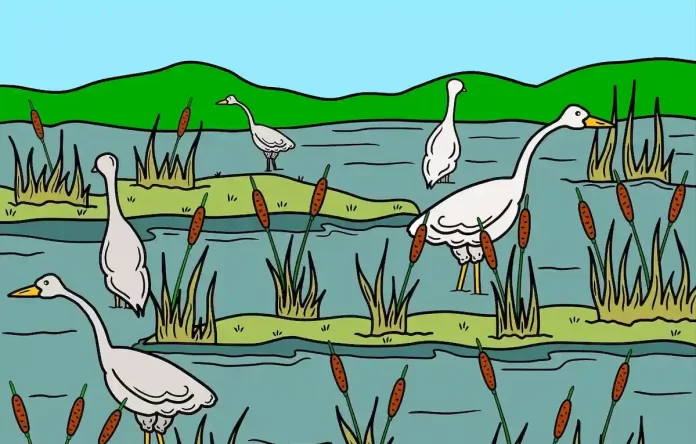Imagine an airplane soaring through the clouds, a marvel of modern engineering defying gravity with every hum of its engines. Now, picture each of its vital functions, from maintaining airspeed to navigating turbulence, as if dependent on a single rivet.
Each one seemingly insignificant, yet collectively holding the intricate machine together. This, in essence, is the Rivet Popper Hypothesis, a powerful analogy proposed by renowned biologist Paul Ehrlich, that illuminates the often-underappreciated importance of biodiversity.
The hypothesis draws a striking parallel between the rivets on an airplane and the diverse species within an ecosystem.
Each organism, from the majestic oak tree to the humble earthworm, plays a crucial role in maintaining the complex web of life. Just as removing a single rivet might not immediately bring down the plane, losing a species might not seem catastrophic initially.
However, as more and more rivets are removed, the plane’s integrity weakens, until one day, a seemingly minor stress becomes the tipping point. Similarly, with each lost species, an ecosystem loses a vital function, a cog in the intricate machinery of life, pushing the system closer to a perilous tipping point.
The Rivet Popper Hypothesis goes beyond a simple analogy. It emphasizes the redundancy and resilience inherent in diverse ecosystems. No single species is irreplaceable, for nature has a remarkable ability to adapt and compensate for losses.
Think of a forest after a fire. Although certain plants may be lost, others thrive in the altered sunlight and nutrient-rich soil, paving the way for a new ecological mosaic.
However, this doesn’t mean we can endlessly “pop rivets” without consequence. Redundancy has its limits, and pushing ecosystems beyond their adaptive capacity can lead to cascading effects, unraveling the very fabric of life.
The consequences of such unraveling are far-reaching, impacting not just the natural world but also human well-being.Loss of pollinators leads to decreased crop yields, deforestation disrupts weather patterns, and declining fish populations threaten food security.
These are just a few examples of how our own dependence on the services provided by healthy ecosystems underscores the urgency of protecting biodiversity.
Understanding the Rivet Popper Hypothesis offers us a valuable lens through which to view conservation efforts. It highlights the need for a holistic approach, one that acknowledges the interconnectedness of all species and the vital roles they play.
Simply focusing on charismatic megafauna, while neglecting the “little things,” is akin to prioritizing the shiny exterior of the plane while neglecting the integrity of its internal structure.
Conservation strategies must consider the ripple effects of species loss, protecting not just individual species but entire ecological networks.
The hypothesis also challenges us to move beyond reactive measures towards proactive ones. We must shift our focus from simply preventing extinctions to actively rebuilding the resilience of ecosystems.
This can involve restoring degraded habitats, promoting sustainable practices, and fostering a deeper understanding and appreciation for the natural world.
The Rivet Popper Hypothesis is not merely a scientific concept; it is a call to action, a reminder that the fate of our planet and our own future is inextricably linked to the fate of the countless species that share it.
By recognizing the hidden strength of biodiversity and protecting the ecological rivets that hold our world together, we can ensure a future where both people and nature thrive.
This article has only scratched the surface of this fascinating hypothesis. The Rivet Popper Hypothesis continues to spark debate and inspire research, providing a powerful framework for understanding the complex dynamics of ecosystems and the vital role of biodiversity in our world.
So, the next time you gaze at a soaring airplane, or wander through a lush forest, remember the silent symphony of life playing out around you, each species a vital rivet holding the web of existence together.
And perhaps, we will be inspired to act as stewards, not rivet poppers, ensuring that the plane of life continues to soar for generations to come.
